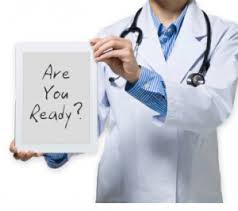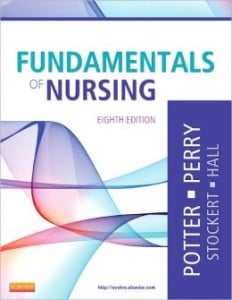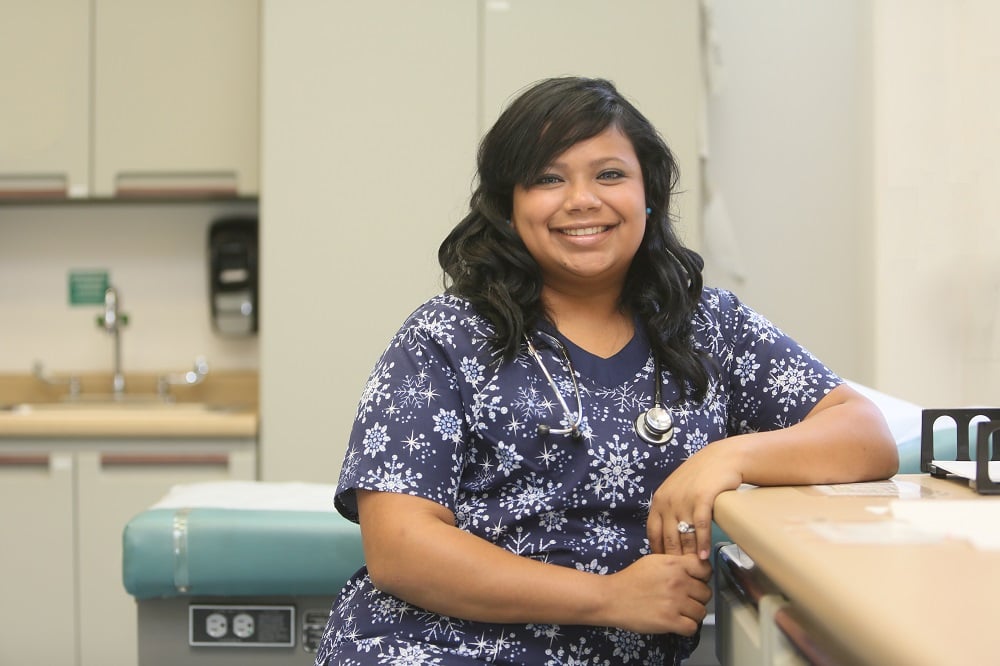
During LPN School & Obtaining License

Needed LPN School Supplies
Before you start your LPN program you will need to complete a cardiopulmonary resuscitation (CPR) class if you have not already done so. The school usually has a requirement for a physical exam to be completed by your healthcare practitioner, as well as documentation of current immunization status, so make an appointment soon. You may need to get an influenza vaccine and a TB test.
You will need a laptop computer of some kind in order to type up your school papers. If you are unable to obtain a computer, your local library usually offers community computers for you. It will be necessary to purchase the below items which are NOT included in the cost of tuition:
- Nursing School Uniform – The school will let you know their requirements and which uniform store to purchase them. The cost is usually around $100.00.
- Belled Stethoscope – Can be purchased online or at the uniform store. A good one costs about $75. There are cheaper ones but they are of poor quality. This is one of those times where you do get what you pay for. While you are at it pick up a handy holder for your stethoscope as well. We recommend Stethosnap. Plus you'll be the envy of your class. Find it here: http://www.stethosnap.com/.
- Nursing Shoes – Usually white shoes are required, no holes in the top, clogs are usually acceptable as long as there is a back strap on them, these can be purchased at the uniform store for about $80.
- White Stockings or Socks – Can be purchased at any general department store for about $10
- Bandage Scissors – These are specially shaped scissors that help to prevents cuts to patient skin. You can purchase them at the uniform shop for about $20
- Penlight- you will need this to check eye pupils for neurological checks. They can be purchased at the uniform store or any general department store for around $5
- Required Textbooks – The school will let you know what texts and workbooks you will need. It is not necessary to purchase brand new textbooks. You can rent textbooks through your computer or purchase used textbooks. Unfortunately textbooks can run $500 - $1000 throughout the course of the program.
- Writing Utensils & Stationary - Spiral paper notebooks and binders for each class. Pocket spiral notebook for clinical days. Black pens (no blue)
See more in our guide called Monetary Costs of LPN Schools & How to Save.
General LPN Courses
The general courses that many schools require include:
- Human Biology - Human biology will discuss cell and muscle function along with anatomy of the body.
- College Composition - You will help you learn how to write better papers.
- College Success Skills – This course will teach you about time management and how to study efficiently
- Microbiology - Microbiology is important so you know about the organisms that make patients ill and the antibiotics that provide treatment.
Nursing Specific Courses
 Your nursing courses include but not limited to:
Your nursing courses include but not limited to:
- Fundamentals of Nursing Care- This is a course to teach you the basics of how to do important nursing tasks such as insert a urinary catheter, start an IV, give medication, insert a nasogastric tube, infection control and sterile techniques, and of course good hand washing.
- Pharmacology and Drug Calculation – This course will help you learn about the medications take and how to calculate dosages.
- Nutrition and Diet Therapy - This course usually describes good nutrition, various diet needs during medical conditions, and dietary needs in various cultures.
- Introduction to Psychology – This course discussed normal and abnormal psychological conditions.
Ream more about various LPN classes and curriculum you may encounter within LPN school.
LPN Clinical Practicums
In this part of your program you will be in the classroom some days of the week and on alternate days practice your clinical skills by taking care of patients under the supervision of your nursing instructor. There is a classwork and clinical practicum block in each of following areas:
- Medical-Surgical Nursing
- Pediatrics
- Maternal and Newborn Nursing
- Mental Health and Psychiatric Nursing
For each clinical day you will be expected to be study ahead and be prepared to answer questions regarding your assigned patient’s illness, the medications the patient is on, and what interventions are appropriate to help the patient get better. You may be assigned to be on a hospital unit, outpatient clinic, or surgery area.
Time Management
The best tool for getting organized and manage time wisely is to purchase a daily calendar to write in. Block out times for classes and clinical practicums, tests, due dates for projects and papers, work, church—just about everything. The purpose of doing this is to truly get a feel for your “free time”. From this free time “work backwards”. If you have a paper due in 4 days, write down small goals so that you don’t have to spend a whole day getting the whole thing done. Do not procrastinate! “Chunk” your work into small, more manageable tasks. Write down in your calendar:
- 4 Days Prior – Get outline of paper done
- 3 Days Prior – Write first half of paper from outline
- 2 Days Prior – Write second half of paper from outline
- 1 Day Prior – Read the paper out loud, edit and retype as final
This will help you be successful, have time for fun also, and get better grades! You can find additional tips on time management as a student at https://bigfuture.collegeboard.org/get-started/inside-the-classroom/8-ways-to-take-control-of-your-time
Preparing for LPN Class
The instructor will provide a syllabus and calendar for what is going to be taught on which lecture days. It helps you to learn the material easier when you read from the book on the topic prior to class. After each class re-write your notes – it not only makes them more readable studies show that it helps the material “stick” better and improves learning!
 Studying for Tests
Studying for Tests
There are several ways to study for a test but ultimately you will have to figure out the best way to do this. Studying for a test takes time and practice. A great way to think about studying is to study as if you were the instructor. What test questions would YOU ask if you wanted to test students. A great guide for study tips can be found at http://www.howtostudy.com/.
Taking Care of Yourself
There are some great tips to taking care of yourself during LPN school. School can at times be stressful. Remember these important tips:
- Stop, breathe, and tell yourself: “This is hard and I will get through this 1 step at a time.”
- Get enough rest and sleep. Sleep at least 6 hours and not more than 9 hours.
- Eat regularly and make healthy choices.
- Know your limits and when you need to let go.
- Escape for a while through meditation, a book, a movie, or taking a short trip.
- Allow plenty of time for a task.
Working While Going to School
Yes, it is possible to work while going to LPN school but there are a couple of really important tips. First, be realistic about what you can accomplish. It may be great at the time to plan to study until 2am after getting off work at 9pm, but is it realistic? And will it lead to a successful test grade? Also, take time to remember your LPN goal when feeling tired and a bit discouraged! You can do this! Hang in there! It will take more-than-usual self-discipline to be successful at both.

Waiting to Take NCLEX-PN
So now you are finished with school and have graduated from your LPN program! I can finally relax, right? Well... now it is time to prepare for your nursing licensure test called the National Council Licensure Examination for Practical Nurses (or NCLEX-PN). This test is required before you can be hired to work as an LPN. Passing this examination demonstrates your competency to work as an LPN. Your LPN school may offer a NCLEX-PN Practice Class in which you review important material and practice test questions prior to the real test.
The NCLEX-PN Process
Before you can take the NCLEX-PN exam, you’ll need an Authorization to Test (ATT). To get this, you’ll need to apply to your board of nursing and then register through the National Council of State Boards of Nursing (www.ncsbn.org/nclex.htm). The cost of this is around $200.00. You’ll want to start this process well in advance of your target date for taking the exam. As part of your preparation, you’ll want to review the NCLEX Candidate Bulletin and familiarize yourself with the format of the NCLEX test plan.
Scheduling the NCLEX-PN
Once you have obtained your Authorization to Test email, you can now register online or by phone to take your NCLEX-PN test. You can look one the NCSBN web site to search for test sites. Test centers can fill up quickly. Once you register for a specific date and time, you will receive more detailed information about the test by email. Don’t wait until your ATT is close to expiration to schedule your exam or you may have to reregister and repay.
About the NCLEX-PN
The test is organized into four sections and include questions on topics that will be tested during the NCLEX-PN examination. The test itself is organized into four areas of nursing:
- Safe and Effective Care Environment - Will include test questions about interventions that protect the client and health care personnel. Examples include informed consent, ethical practice, client rights, safe use of equipment, standard precautions, transmission-based precautions, and surgical asepsis
- Health Promotion and Maintenance - Will include questions normal growth and development, prevention, and health. Examples include the aging process, health screening, self-care, and physical assessment.
- Psychosocial Integrity - Will include test questions about caring for patients in stressful events and during mental illness. Examples include end of life care, mental health and disorders, chemical dependency, and therapeutic communication
- Physiological Integrity - Will include test questions about physical health and patient activities of daily living. Examples include nutrition and oral hydration, rest and sleep, medication administration, diagnostic and lab tests, fluid and electrolyte imbalances, and illness management.
To learn more about the test, what is in each section of the test and the perfect of questions in each section, a great NCSBN resource is at www.ncsbn.org/2013_NCLEX_RN_Test_Plan.pdf
Test Day Preparation
There are a couple great tips to be ready to take the NCLEX-PN and give you the greatest opportunity to succeed.
- Be Prepared - Bring your acceptable ID as described in your email information.
- Dress Comfortably - You're required to leave hats, scarves, gloves and coats outside of the testing room.
- Arrive Early - Plan to arrive 30 minutes before your exam. If you are more than 30 minutes late, you may have to forfeit, reregister and pay another exam fee.
- Set Pace - You'll have up 5 hours for the PN exam, including the short tutorial and 2 optional breaks. Take time to analyze each question carefully—once you submit an answer you can't return to that question.
- Finishing Up - You’ll end with a short computerized survey. Afterwards, raise your hand and wait for the TA to dismiss you.
Take our NCLEX-PN practice test.
Keep in mind that although the exam is graded as you progress, scores go through a second verification process. Your score is not available and will not be released at the test center. The passing standard is called the “cut point” and it is a score that reflected the minimum competency to safety function as an LPN. The cut point may change over time but is set, published on their website, and re-evaluated by the NCSBN as needed. Read about about the exam day.
Getting your NCLEX-PN Test Results
Some state boards of nursing participate in a Quick Results program and you can log into the NCSBN website to see your results 48 hours after taking the test. However, only the state Board of Nursing can provide you with official results and these will come in the mail 6 weeks after completing the NCLEX-PN test. You will be mailed a performance report which will state whether or not you passed and describe how you did in each section of the test. For a sample of a performance report go to www.ncsbn.org/Sample_CPR_PN.pdf. The State Board of Nursing then mails you a copy of your nursing license.
Failing the NCLEX-PN
The NCSBN has a retake policy that you to retake the exam 45 days after you last took the exam and you will be required to pay fees again. You can take the NCLEX-PN exam up to eight times a year, but no more than once in any 45-day period. Learn more about taking the exam a second time and see additional tips.
 Getting an LPN Job
Getting an LPN Job
While you wait for your NCLEX-PN results get some well-needed rest. Please rest! Reconnect with your family and friends, travel, and vacation. It may be good to organize your school books and papers. But get some rest! As soon as you can show evidence of passing the NCLEX-PN exam, either through the Quick Results or letter from the State Board of Nursing, you can begin to search for a position as an LPN. Many organizations will hire you prior to your test results as you still go through the organizations orientation process. Look into many of the different avenues LPN's work. Research more about the various LPN careers and LPN Jobs.
Next Guides: NCLEX-PN Exam Overview > LPN Resume & Job Application > LPN Interviewing > Working as an LPN
Related Articles
Featured Article

Licensed Practical Nurse (LPN) vs Registered Nurse (RN)




